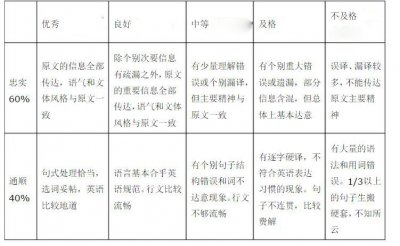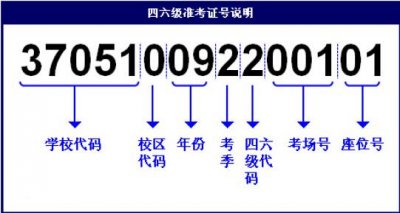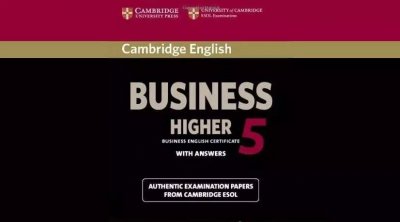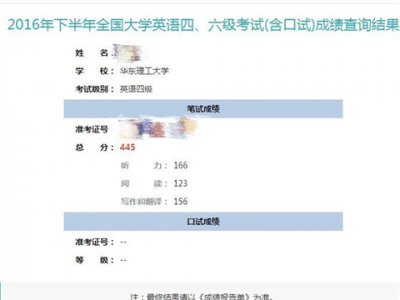2019年6月英语六级模拟试题及参考答案(1)(2)
The idea has proved popular with customers ― they can now travel in air-conditioned comfort and because the new cabs are metered, they don’t have to argue over fares. Banks and car manufacturers are glad for the extra business in tough economic times. As for the taxi drivers, most are delighted to be behind the wheel of new cars, although there have been a few complaints about switching from black and white to a plain white colour.
5. What change took place in Cairo recently?
6. What helped bring about the change?
7. Why do customers no longer argue with new cab drivers?
Section B
Directions: In this section, you will hear two long conversations. At the end of each conversation, you will hear four questions. Both the conversation and the questions will be spoken only once. After you hear a question, you must choose the best answer from the four choices marked A), B), C) and D). Then mark the corresponding letter on Answer Sheet 1 with a single line through the centre.
Conversation One
W: Morning, this is TGC.
M: Good morning. Walter Barry here, calling from London. Could I speak to Mr. Grand, please?
W: Who’s calling, please?
M: Walter Barry, from London.
W: What is it about, please?
M: Well, I understand that your company has a chemical processing plant. My own company, LCP, Liquid Control Products, is a leader in safety from leaks in the field of chemical processing. I would like to speak to Mr. Grand to discuss ways in which we could help TGC protect itself from such problems and save money at the same time.
W: Yes, I see. Well, Mr. Grand is not available just now.
M: Can you tell me when I could reach him?
W: He’s very busy for the next few days – then he’ll be away in New York. So it’s difficult to give you a time.
M: Could I speak to someone else, perhaps?
W: Who in particular?
M: A colleague for example?
W: You’re speaking to his personal assistant. I can deal with calls for Mr. Grand.
M: Yes, well, could I ring him tomorrow?
W: No, I’m sorry he won’t be free tomorrow. Listen, let me suggest something. You send us details of your products and services, together with references from other companies and then we’ll contact you.
M: Yes, that’s very kind of you. I have your address.
W: Very good, Mr….
M: Barry. Walter Barry from LCP in London.
W: Right, Mr. Barry. We look forward to hearing from you.
M: Thank you. Goodbye.
W: Bye.
Questions 8 to 11 are based on the conversation you have just heard.
8. What do we learn about the woman’s company?
9. What do we learn about the man?
10. What is the woman’s position in her company?
11. What does the woman suggest the man do?
Conversation Two
M: You’re going to wear out the computer’s keyboard!
W: Oh, hi.
M: Do you have any idea what time it is?
W: About ten or ten-thirty?
M: It’s nearly midnight.
W: Really? I didn’t know it was so late.
M: Don’t you have an early class to teach tomorrow morning?
W: Yes, at seven o’clock. My commuter class, the students who go to work right after their lesson.
M: Then you ought to go to bed. What are you writing, anyway?
W: An article I hope I can sell.
M: Oh, another of your newspaper pieces? What’s this one about?
W: Do you remember the trip I took last month?
M: The one up to the Amazon?
W: Well, that’s what I’m writing about—the new highway and the changes it’s making in the Amazon valley.
M: It should be interesting.
W: It is. I guess that’s why I forgot all about the time.
M: How many articles have you sold now?
W: About a dozen so far.
M: What kind of newspapers buy them?
W: The papers that carry a lot of foreign news. They usually appear in the big Sunday editions where they need a lot of background stories to help fill up the space between the ads.
M: Is there any future in it?
W: I hope so. There’s a chance I may sell this article to a news service.
M: Then your story would be published in several papers, wouldn’t it?
W: That’s the idea. And I might even be able to do other stories on a regular basis.
M: That would be great.
Questions 12 to 15 are based on the conversation you have just heard.
12. What is the woman’s occupation?
13. What is the woman writing about?
14. Where do the woman’s articles usually appear?
15. What does the woman expect?
Section C
Directions: In this section, you will hear three passages. At the end of each passage, you will hear some questions. Both the passage and the questions will be spoken only once. After you hear a question, you must choose the best answer from the four choices marked A), B), C) and D). Then mark the corresponding letter on Answer Sheet 1 with a single line through the centre.
Passage One
In today’s class, we’ll discuss Toni Morrison’s novel Beloved. As I’m sure you all know, Morrison is both a popular and a highly respected author, and it’s not easy to be both. Born in 1931, Morrison has written some of the most touching and intelligent works on the African-American experience ever written by anyone, and yet to call her an “African-American writer” doesn’t seem to do her justice. In many ways, she’s simply an American writer—and certainly one of our best.
Beloved is a truly remarkable work. It was recommended for nearly every major literary prize, including the National Book Award and the National Book Critics Circle Award, and it in fact won the Pulitzer Prize for fiction in 1988. Morrison herself is distinguished for having won the Nobel Prize for literature in 1993.
What makes Beloved unique is the skillful, sure way in which Morrison blends intensely personal storytelling and American history, racial themes and gender themes, the experience of Blacks with the experience of all people everywhere, the down-to-earth reality of slavery with a sense of mysterious spirituality.
We’ll be paying special attention to these themes as we discuss this work. I’m particularly interested in your views on the relative importance of race and gender in this book. Is it more important that Sethe, the main character, is black or that she’s a woman? Which contributes more to her being? What does Morrison tell us about both?
Questions 16 to 18 are based on the passage you have just heard.
16. What do we learn about Toni Morrison?
17. What honor did Toni Morrison receive in 1993?
18. What does the speaker tell us about Sethe, the main character in Morrison’s novel Beloved?
Passage Two
The topic of my talk today is gift-giving. Everybody likes to receive gifts, right? So you may think that gift-giving is a universal custom. But actually, the rules of gift-giving vary quite a lot, and not knowing them can result in great embarrassment. In North America, the rules are fairly simple. If you’re invited to someone’s home for dinner, bring wine or flowers or a small item from your country. Among friends, family, and business associates, we generally don’t give gifts on other occasions except on someone’s birthday and Christmas. The Japanese, on the other hand, give gifts quite frequently, often to thank someone for their kindness. The tradition of gift-giving in Japan is very ancient. There are many detailed rules for everything from the color of the wrapping paper to the time of the gift presentation. And while Europeans don’t generally exchange business gifts, they do follow some formal customs when visiting homes, such as bringing flowers. The type and color of flowers, however, can carry special meaning.
Today we have seen some broad differences in gift-giving. I could go on with additional examples. But let’s not miss the main point here: If we are not aware of and sensitive to cultural differences, the possibilities for miscommunication and conflict are enormous. Whether we learn about these differences by reading a book or by living abroad, our goal must be to respect differences among people in order to get along successfully with our global neighbors.
Questions 19 to 21 are based on the passage you have just heard.
19. What does the speaker say about gift-giving of North Americans?
20. What do we learn about the Japanese concerning gift-giving?
21. What point does the speaker make at the end of the talk?
Passage Three
Hetty Green was a very spoilt, only child. She was born in Massachusetts, USA, in 1835. Her father was a millionaire businessman. Her mother was often ill, and so from the age of two her father took her with him to work and taught her about stocks and shares. At the age of six she started reading the daily financial newspapers and opened her own bank account.
Her father died when she was 21 and she inherited $7.5 million. She went to New York and invested on Wall Street. Hetty saved every penny, eating in the cheapest restaurants for 15 cents. She became one of the richest and most hated women in the world. At 33 she married Edward Green, a multi-millionaire, and had two children, Ned and Sylvia.
Hetty’s meanness was well known. She always argued about prices in shops. She walked to the local grocery store to buy broken biscuits which were much cheaper, and to get a free bone for her much loved dog. Once she lost a two-cent stamp and spent the night looking for it. She never bought clothes and always wore the same long, ragged black skirt. Worst of all, when her son Ned fell and injured his knee, she refused to pay for a doctor and spent hours looking for free medical help. In the end Ned lost his leg.
When she died in 1916 she left her children $100 million. Her daughter built a hospital with her money.
Questions 22 to 25 are based on the passage you have just heard.
22. What do we learn about Hetty Green as a child?
23. How did Hetty Green become rich overnight?
24. Why was Hetty Green much hated?
25. What do we learn about Hetty’s daughter?
参考答案
作文略。
1)作文评分标准
本题满分为15分,成绩分为六个档次:13-15分、10-12分、7-9分、4-6分、1-3分和0分。2019年6月英语六级模拟试题及参考答案(1)
2)翻译评分标准
本题满分为15分,成绩分为六个档次:13-15分、10-12分、7-9分、4-6分、1-3分和0分。
Part II Listening Comprehension
Section A
1. B
2. C
3. A
4. D
5. D
6. A
7. C
Section B
8. D
9. B
10. B
11. C
12. A
13. B
14. C
15. D
Section C
16. A
17. B
18. D
19. D
20. C
21. B
22. B
23. A
24. D
25. C
Part III Reading Comprehension
Section A
36. A 37. F 38. O 39. B 40. I
41. E 42. H 43. D 44. C 45. L
Section B
46. F 47. K 48. D 49. A 50. M
51. I 52. B 53. J 54. E 55. H
Section C
56. A 57. D 58. C 59. A 60. B
61. A 62. D 63. A 64. D 65. B
Part IV Translation
Chinese New Year is the most important traditional Chinese holiday. In China, it is also known as the Spring Festival. New Year celebrations run from Chinese New Year’s Eve, the last day of the last month of the lunar calendar, to the Lantern Festival on the 15th day of the first month. Customs and traditions concerning the celebration of the Chinese New Year vary widely from place to place. However, New Year’s Eve is usually an occasion for Chinese families to gather for the annual reunion dinner. It is also traditional for every family to thoroughly clean the house in order to sweep away ill fortune and to bring in good luck. And doors will be decorated with red couplets with themes of health, wealth and good luck. Other activities include lighting firecrackers, giving money in red envelopes, and visiting relatives and friends.
以上就是2019年6月英语六级模拟试题的内容啦,大家可以自己练习并核对答案,总结错题。希望各位小伙伴顺利通过六级考试!





 2018年12月大学英语四
2018年12月大学英语四 Quora精选:懒癌晚期
Quora精选:懒癌晚期 2018年6月英语六级成
2018年6月英语六级成 天下父母心:parent怎
天下父母心:parent怎 (双语)联合国秘书长
(双语)联合国秘书长 CATTI考试英语二级笔
CATTI考试英语二级笔 【真题精析】2016年12
【真题精析】2016年12 备考六级:30天背完六
备考六级:30天背完六 2017年4月英语专业4级
2017年4月英语专业4级 2017年12月英语六级翻
2017年12月英语六级翻 大神分享:我是如何拿
大神分享:我是如何拿 大学英语四级冲刺模拟
大学英语四级冲刺模拟 2016改革后专八真题:
2016改革后专八真题: 2016改革后专八真题:
2016改革后专八真题: 2017年5月六级口语考
2017年5月六级口语考 2017年上半年CATTI二
2017年上半年CATTI二






